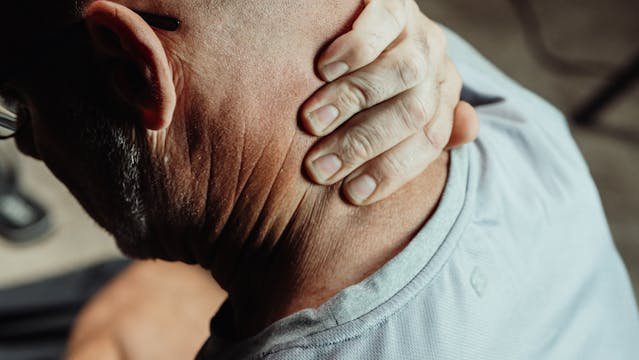
Aches and pains are a natural aspect of life, whether they arise from long hours at a desk, physical exertion, or the effects of aging. While medications can alleviate discomfort, they often come with unwanted side effects and the risk of addiction. Fortunately, there are natural and effective methods to relieve discomfort without the need for pills. By implementing small changes in your daily routine, you can lessen pain and enhance your overall wellbeing.
At facilities like Manitowoc Rehabilitation Center, professionals highlight the significance of movement, posture, and lifestyle modifications in managing pain naturally. These approaches not only tackle existing discomfort but also help in preventing future issues. Whether you’re experiencing stiff joints, sore muscles, or general fatigue, adopting a few essential habits can lead to substantial improvements.
Emphasize Movement and Stretching
Living a sedentary lifestyle can lead to stiffness and chronic pain. Our bodies are designed for movement, and engaging in regular physical activity keeps muscles flexible and strong.
- Gentle stretching in the morning and throughout the day alleviates tension and enhances mobility. Simple movements such as shoulder rolls, neck stretches, and lower back stretches can offer immediate relief.
- Low-impact exercises like walking, swimming, or yoga promote joint health and improve circulation, contributing to long-term pain reduction.
- Strength training strengthens muscles to support joints, mitigating strain and discomfort caused by weak or imbalanced muscles.
Even minor actions—like standing up every 30 minutes while working at a desk—can lead to noticeable improvements.
Enhance Your Posture
Poor posture is a major contributor to chronic pain, particularly in the neck, shoulders, and lower back. Over time, many individuals develop bad habits, such as slouching while seated or frequently looking down at their phones.
To enhance your posture:
- Keep your shoulders relaxed and back while sitting or standing.
- Utilize an ergonomic chair or cushion for lower back support.
- Set your computer screen to eye level to prevent neck strain.
- Achieve proper alignment while sleeping—using a supportive pillow and mattress can help prevent stiffness.
Implementing these small adjustments can significantly alleviate strain on your muscles and joints.
Utilize Heat and Cold Therapy
Switching between heat and cold can effectively manage pain and inflammation.
- Heat therapy (such as heating pads, warm baths, or heat packs) relaxes muscles and enhances blood flow, which can alleviate chronic aches.
- Cold therapy (using ice packs or cold compresses) numbs sharp pain and reduces swelling, making it beneficial for injuries or flare-ups.
Understanding when to apply each approach can optimize relief; heat is ideal for stiffness and chronic pain, while cold works best for sudden pain and inflammation.
Stay Hydrated and Consume Anti-Inflammatory Foods
Your dietary choices significantly influence how you feel. Dehydration can lead to muscle cramps and stiffness, making it vital to drink sufficient water throughout the day.
Additionally, an anti-inflammatory diet can gradually reduce pain. Foods high in omega-3 fatty acids (like salmon and flaxseeds), leafy greens, berries, and nuts possess natural pain-relieving properties. Conversely, processed foods, excessive sugars, and alcohol can exacerbate inflammation and discomfort.
Implement Stress Management Techniques
Stress and pain are intertwined; when the body is tense, muscles tighten, leading to greater discomfort. Effectively managing stress can help prevent unnecessary aches.
Some simple yet powerful stress-relief techniques include:
- Deep breathing exercises to ease tense muscles.
- Meditation or mindfulness to redirect focus from pain.
- Massage therapy to alleviate tension and boost circulation.
Spending just a few minutes each day to unwind can result in long-lasting improvements in pain and overall health.
Ensure Adequate Rest
Sleep is the time when the body heals itself, making it crucial for managing pain. Poor sleep quality can enhance the perception of aches, while good-quality rest aids muscle repair and recovery.
To enhance your sleep:
- Maintain a consistent sleep schedule.
- Limit screen time before bedtime to support natural melatonin production.
- Create a soothing sleep environment with minimal light and noise.
A well-rested body is better equipped to handle daily activities without discomfort.
Implementing simple changes in your routine can lead to marked improvements in how you feel. By concentrating on movement, posture, nutrition, stress management, and rest, you can alleviate aches and pains and enhance your quality of life—without the need for medication.






